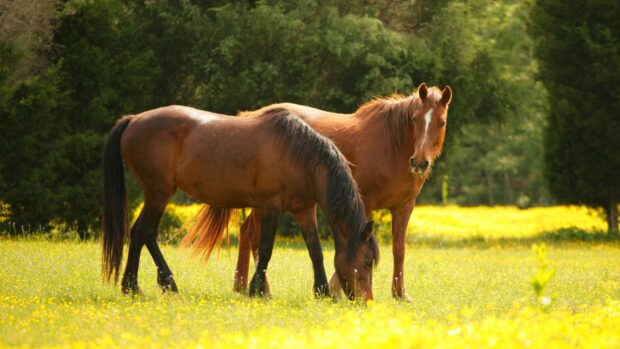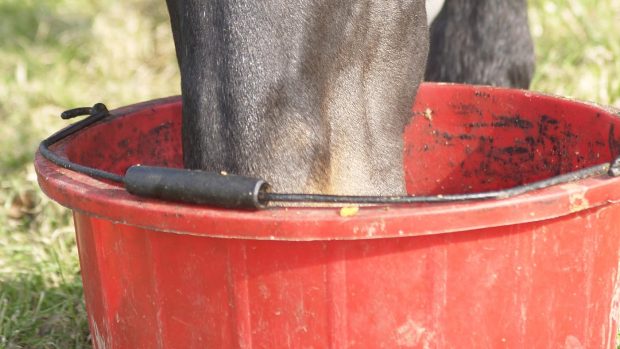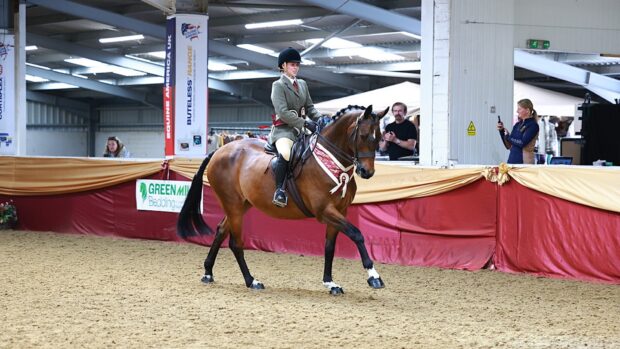Q: I have a 13.2hh, 26-year-old Welsh mare who is really hard to put weight on. Please could you give me some advice on what I should be feeding to put some weight on her. At the moment although she has quite a large stomach, you can still see her ribs.
Christine Smy replies: It sounds as if your mare may be starting to feel her age.
Before you consider her feeding regime, there are several other factors that may need attention:
- Teeth – have you had your horse’s teeth checked recently?
- Worming – your vet may need to make up a comprehensive worming programme for your mare, to eliminate specific worms.
- Exercise – older horses become less active, particularly if they are stiff or arthritic. If you no longer ride your mare, walk her out in hand daily to increase her metabolism and improve gut mobility.
With regard to her feeding, firstly look at the droppings. Loose, discoloured or strong-smelling droppings suggest you need to reconsider your feeding regime, especially if the other points have been addressed.
Take into consideration both the forage and concentrate portions of the diet.
Forage: your mare’s large belly could be down to a sluggish metabolism due to low exercise teamed with poor quality hay. Check what hay you’re feeding. Early-cut hay is the most digestible, or you could consider haylage.
If you do change, do it slowly, and if you opt for haylage, feed at least 25 per cent more of it to compensate for the increased water content.
Concentrates: use a veteran feed as these are higher in nutrition and take into account the extra needs of an older horse. Most contain soya, a good source of protein. Aim to change over a few days and work up to 4-6lb a day, split into two feeds.
Feed an oil-based chaff to add condition – if this doesn’t work, body builder products should add condition and topline.
Read more feed conditioning advice:



